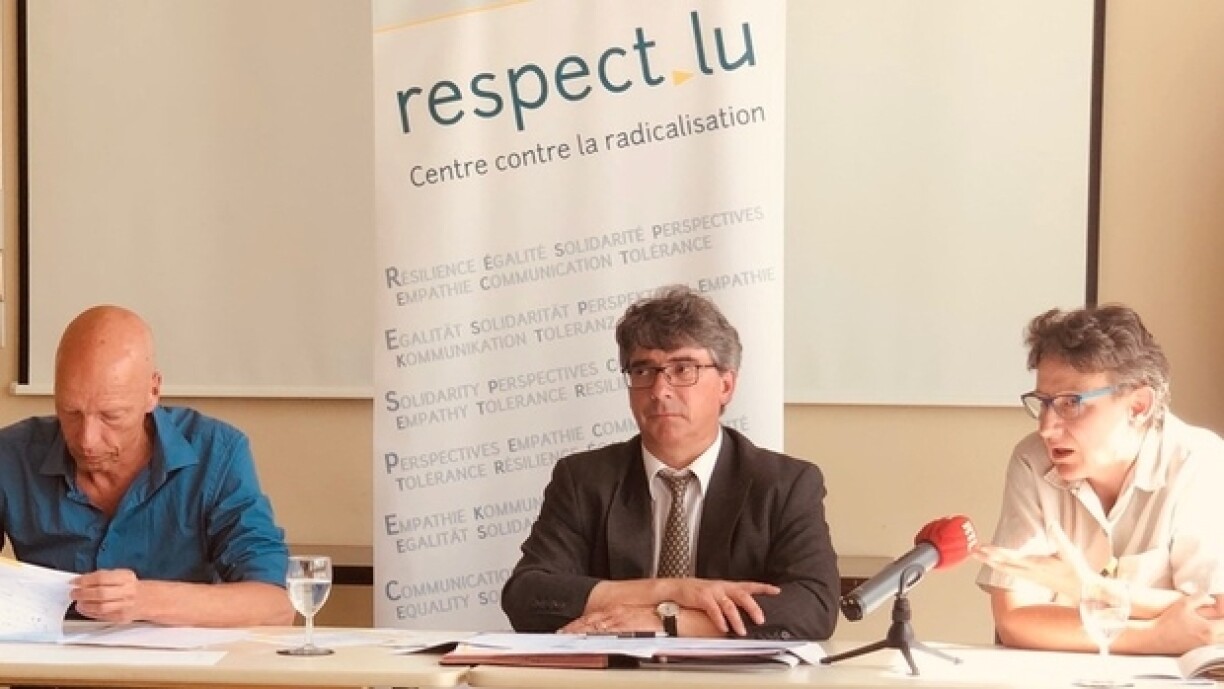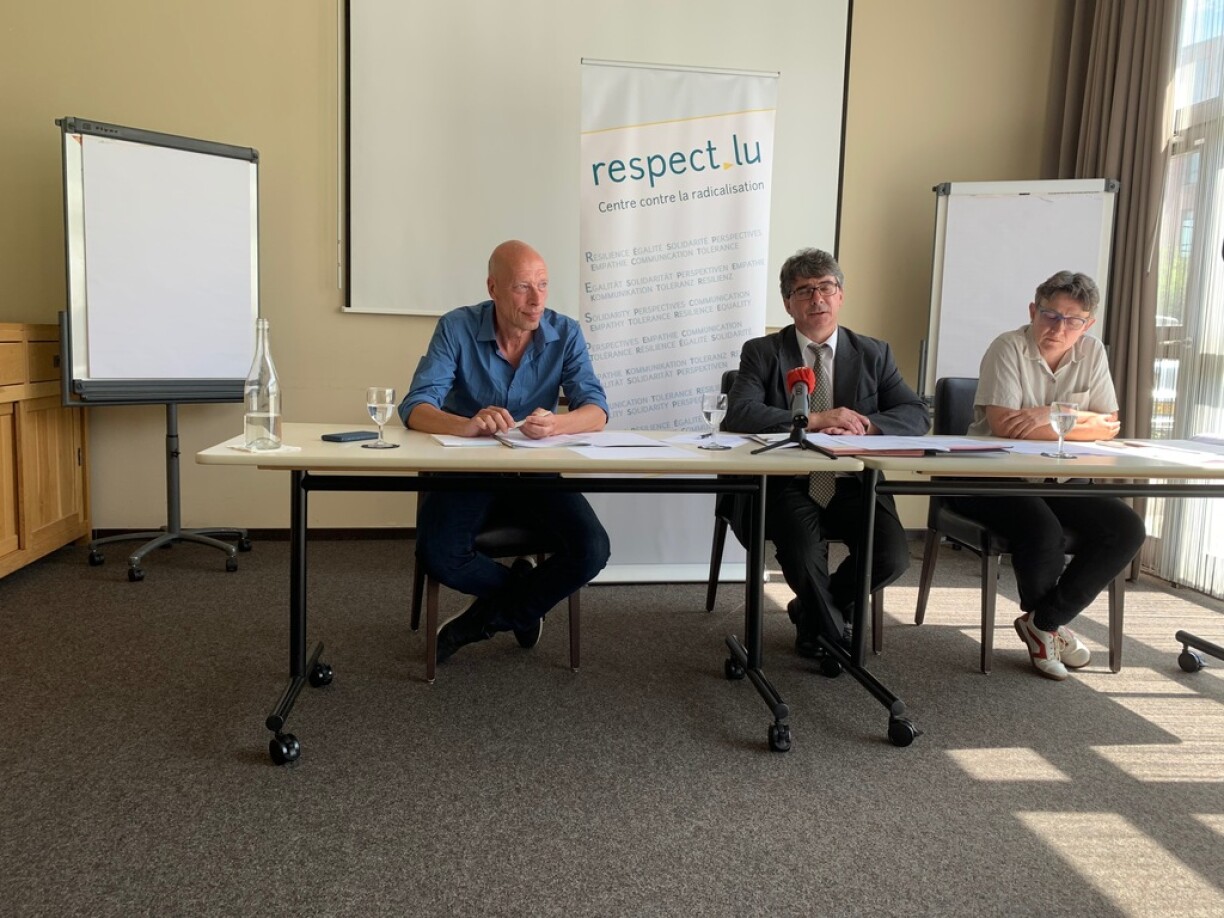
The respect.lu platform has been in existence for two years now. Until now, most of their work was preventative, but now they would like to take the next step against radicalisation.
A family member or a friend notices that their acquaintance is developing increasingly radical tendencies. Whether far-right or Islamist - you can seek help from respect.lu for any type of radicalisation. Currently, four psychologists are at your disposal to provide assistance. The psychologists try to get in touch with the person at risk of radicalisation. This happened 29 times last year. The director, Karin Weyer, detailed that, out of the situations they dealt with, 57% pertained to the Islamist spectrum, 3% to the far-right, 23% to other political or religious ideologies, and 17% did not fit into any particular category.
The respect.lu team worked with a number of affected people. In some cases, the team had needed to contact the police or judicial system, as there was a risk of danger, said the director. Talking about radical Islamism: Foreign Minister Jean Asselborn is not particularly keen on welcoming the Portuguese-Luxembourgish IS fighter Steve Duarte back to Luxembourg. He thinks that political responsibility lies with Portugal. Karin Weyer commented on the matter by saying that, to the best of our knowledge, those people who left for Syria grew up here in Luxembourg, so it is worth asking what kind of a society would say “we don’t want them back”. She added that it wasn’t their place to decide on this, but that they could prepare and be ready to accommodate people like that.

The challenge is de-radicalisation - preparing the affected people for a life in an open society while they are serving their sentence. The team wants to work on those skills with the help of a German expert: Thomas Mücke is a pedagogue and political scientist who advocates that everyone, including IS fighters, should be given a second chance. He argues that young people especially are able to successfully leave extremism and violence behind if they receive the right support. He adds that you do have to be careful in some cases and work closely together with the police.
This year, respect.lu has already dealt with 25 cases.